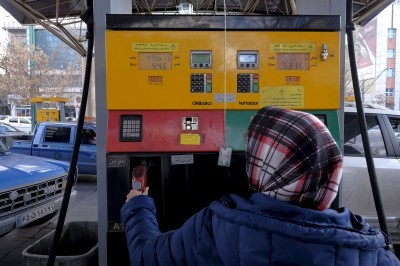-
Tips for becoming a good boxer - November 6, 2020
-
7 expert tips for making your hens night a memorable one - November 6, 2020
-
5 reasons to host your Christmas party on a cruise boat - November 6, 2020
-
What to do when you’re charged with a crime - November 6, 2020
-
Should you get one or multiple dogs? Here’s all you need to know - November 3, 2020
-
A Guide: How to Build Your Very Own Magic Mirror - February 14, 2019
-
Our Top Inspirational Baseball Stars - November 24, 2018
-
Five Tech Tools That Will Help You Turn Your Blog into a Business - November 24, 2018
-
How to Indulge on Vacation without Expanding Your Waist - November 9, 2018
-
5 Strategies for Businesses to Appeal to Today’s Increasingly Mobile-Crazed Customers - November 9, 2018
Iran talks on output freeze under way
Iranian Oil Minister Bijan Zanganeh met counterparts from Venezuela, Iraq and Qatar on Wednesday but did not say if Iran would cap its output in keeping with the move by Russia, Saudi Arabia and Iraq.
Advertisement
Iran has not yet committed to freeze oil production to January levels to shore up prices.
Oil prices also gained support after US crude stocks unexpectedly fell by 3.3 million barrels last week to 499.1 million, data from the American Petroleum Institute showed on Wednesday.
Tehran has been the main obstacle to the first joint OPEC and non-OPEC deal in 15 years, after its pledge to recapture market share lost to sanctions.
Brent crude oil, Russia’s main export, was up 5.4 percent at around $33.9 a barrel. Oil is still trading at levels that make most North American production unviable. However, the sanctions cut their exports to only 1.1 million barrels per day. Whereas a barrel went for as much as $115 (103 euros) in mid-2014, it recently dropped below $30. Zanganeh acknowledged that global markets are “oversupplied”, but said Iran “will not overlook its quota”, according to comments carried by his ministry’s Shana news service.
Saudi Oil Minister Ali al-Naimi said freezing production at January levels – near record highs – was an adequate measure and he hoped other producers would adopt the plan.
The United Arab Emirates’ energy minister, Suhail Mohamed al-Mazrouei, refused on Wednesday to discuss the Doha proposal after giving a keynote address at a Dubai conference in which he mentioned low oil prices only in passing.
Natixis lead oil market analyst Abhishek Deshpande told journalists in Paris that a freeze in production was not enough and is likely to unravel, with only an aggressive cut sufficient to mop up excess crude in the market.
By merely capping supply rather than cutting it, the deal wouldn’t succeed in tackling the global oil glut, Goldman Sachs Group and BNP Paribas said.
Iran had been producing around 2.8 million barrels per day, around one million of which were exported, but after the nuclear deal it announced an immediate hike of 500,000 bpd. Government sources in Iran said the position has not changed.
Advertisement
‘It could pave the way for further action to be taken should the likes of Saudi Arabia, other OPEC members and Russian Federation deem it necessary, ‘ FGE said. Moreover current oil production is still running 1 million to 2 million barrels a day more than consumption, and supply and demand is expected to remain out of balance for most of the year.





























